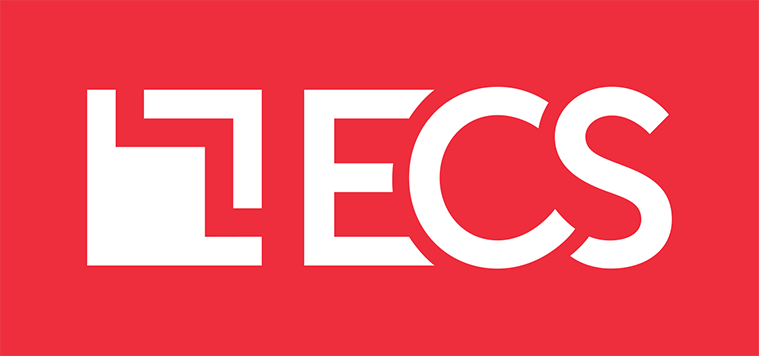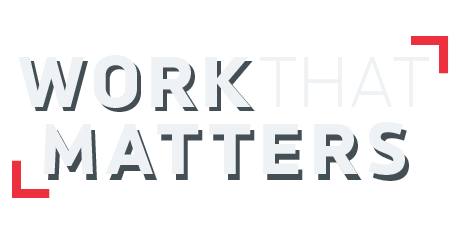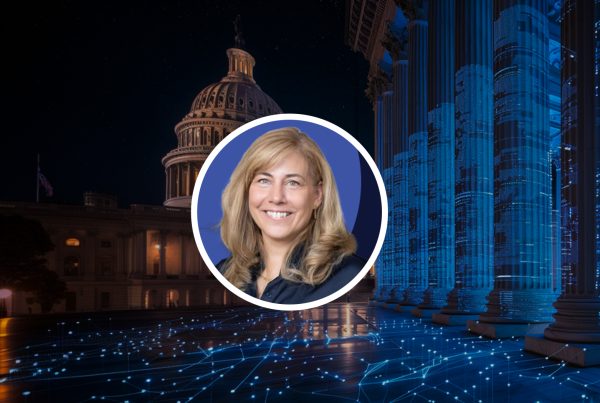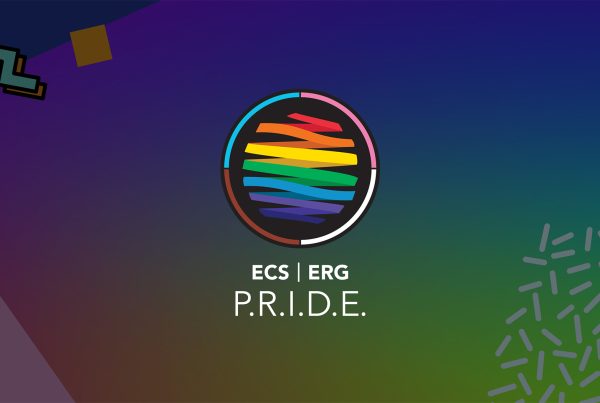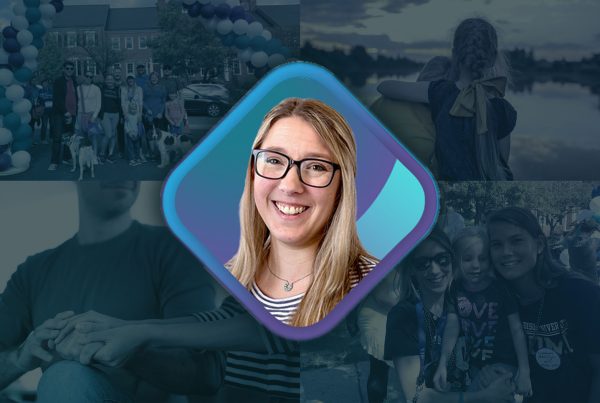“Work That Matters” is a series in which ECS experts discuss their roles and responsibilities and the larger impact they have in the workplace, community, and world. In this installment, we interview Shannel Winslow, senior transformation consultant at ECS. Shannel helps organizations of all sizes do the challenging but hugely rewarding work of optimizing their operations, including personnel and departmental structures, workflows, and processes. She has more than a decade of experience in organizational transformation and holds a Master of Professional Studies degree in industrial and organizational (IO) psychology from the University of Maryland, where she also served as an adjunct professor for more than two years.

SHANNEL WINSLOW
SENIOR TRANSFORMATION CONSULTANT
Q. Organizational transformation involves optimizing every aspect of an organization, from personnel to processes to tools. What does this kind of transformation look like for a cybersecurity-focused client?
 There are three components that a transformation consultant and their client have to keep in mind to have any success with transforming a cybersecurity-focused organization.
There are three components that a transformation consultant and their client have to keep in mind to have any success with transforming a cybersecurity-focused organization.
First, it’s important for the client to understand the potential value and impact of organizational transformation. These types of enterprises are typically quite complicated and involve a lot of moving parts, both people and technology. If they have operational inefficiencies, they could be severely hindered in achieving their mission objectives. So, they should view organizational transformation as an opportunity to optimize and improve the enterprise across the board.
Second, it’s important for the consultant to remember that leaders in these spaces are incredibly smart, talented, and skilled at what they do, whether that’s threat intelligence, cyber defense, etc. If they’ve risen through the ranks over the years, odds are they’re also functionally smart when it comes to operating and getting things done within the organization. But sometimes it’s just hard to see operational inefficiencies from the inside, or they may lose sight over time of how their various teams and functions should ideally work together. This is where the objective perspective of the transformation consultant is crucial.
Finally, the consultant has to keep in mind that cybersecurity organizations are essentially emergency response organizations that are dealing with critical, demanding missions. If you’re trying to effect positive change, you have to be cognizant of those missions and the fact that, at any given moment, your priorities could take a back seat to a cyber incident, and understandably so. Flexibility and perseverance are key.
Q. What is the significance of your work with federal agencies for the average civilian?
 It can be difficult for an end user to see the value of the work I do, because so much of it occurs behind the scenes. Transformation consultants help to optimize processes so that end users actually see an efficiency gain, whether in time saved or money saved. For federal organizations administering critical public services, such as healthcare, that’s going to have a real impact on many people’s day-to-day lives. But it’s not obvious from the outside looking in.
It can be difficult for an end user to see the value of the work I do, because so much of it occurs behind the scenes. Transformation consultants help to optimize processes so that end users actually see an efficiency gain, whether in time saved or money saved. For federal organizations administering critical public services, such as healthcare, that’s going to have a real impact on many people’s day-to-day lives. But it’s not obvious from the outside looking in.
Q. You’ve mentioned your background in IO psychology — the study of human behavior in the workplace. How does that knowledge base factor into achieving organizational transformation?
 The most important thing to know about IO psychology from an organizational transformation perspective is that it is an empirical, data-based approach to effecting change. We are scientists at heart. We deploy many research methods — whether it’s conducting stakeholder interviews, doing roundtables, or reviewing strategy documents — and we do so with a focus on recruiting, training, employee development, successful offboarding, and change management.
The most important thing to know about IO psychology from an organizational transformation perspective is that it is an empirical, data-based approach to effecting change. We are scientists at heart. We deploy many research methods — whether it’s conducting stakeholder interviews, doing roundtables, or reviewing strategy documents — and we do so with a focus on recruiting, training, employee development, successful offboarding, and change management.
Without that data-based foundation, without going in and having conversations with current employees and leadership, without getting input from external partners and stakeholders, it’s nearly impossible to provide a credible point of view on the direction of an organization.
Q. How does ECS’ wide range of solution expertise create an “in” for you as a transformation consultant?
 The idea of change can be scary. Typically, when I’m in the early stages of working with a client, they already have an idea in their head of what to expect. It doesn’t usually involve shifting functions, roles, or responsibilities, reevaluating priorities, reorganization, tough personnel decisions, etc.
The idea of change can be scary. Typically, when I’m in the early stages of working with a client, they already have an idea in their head of what to expect. It doesn’t usually involve shifting functions, roles, or responsibilities, reevaluating priorities, reorganization, tough personnel decisions, etc.
Working for an organization like ECS, where I’m surrounded by talented professionals in a wide array of fields, provides an opening for me to come in and ask the hard questions around priorities, strategic vision, and resources in an environment where the client is comfortable. ECS has great relationships with people on the ground and intimate knowledge of our clients’ missions and organizations. That creates a safe space for people to be a bit more vulnerable and, ideally, receptive to the kind of positive change I’m there to introduce.
